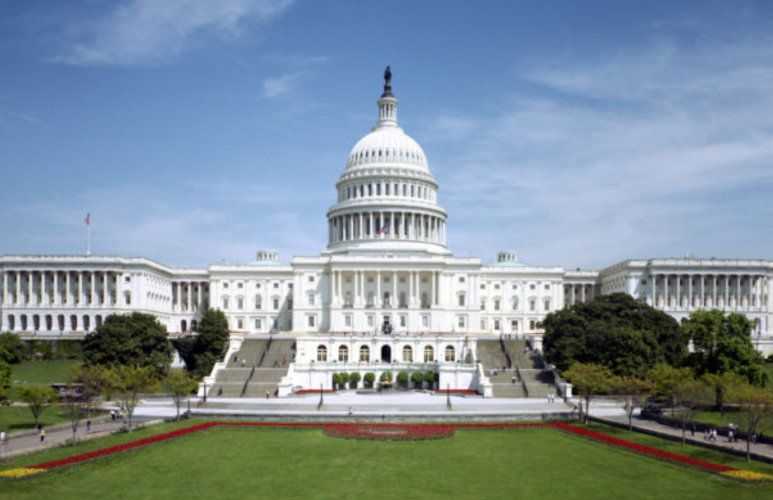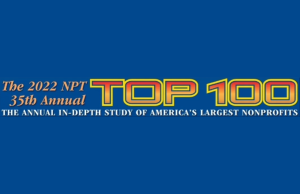Editor’s Note: This story was updated to show the bill that was reported set to be introduced, and reported first by The NonProfit Times, was in fact introduced several hours later.
A bill is was introduced in Congress yesterday that if passed by both chambers and signed by the President could change the relationship between the nonprofit sector and the federal government.
A draft of the legislation obtained by The NonProfit Times, titled The Nonprofit Sector Strength and Partnership Act of 2022, claims four intended purposes:
* To enhance the ability of the nonprofit sector to address public challenges and maximize opportunities to improve quality of life in the communities where nonprofit organizations work;
* To strengthen communities across the United States by making the federal government a more productive partner with nonprofit organizations through the establishment of better federal coordination with respect to enhanced transparency and greater support for the work of nonprofit organizations;
* Collect, assemble, and make available federal data and research on the nonprofit sector and to generate new data and research where necessary to support the development of effective federal policy; and,
* Raise awareness of the nonprofit sector and the vital civic, social, and economic contributions nonprofit organizations make to the United States.
To accomplish those goals, outlined in the draft of the legislation are new coordinating offices within the federal government, changes to the Form 1023-EZ and reorganization of the federal grants application system.
The draft cites statistics regarding the sector and its economic impact on the U.S. economy and workforce. The citations include 1.8 million organizations as of 2020; that nonprofits contributed $1.2 trillion to the economy in 2020 and accounted for 5.9% of the Gross Domestic Product (GDP); the sector has 12 million workers, 20 million board members, 63 million volunteers, and 170 million donors. In 2017, United States nonprofits employed 12.5 million salaried workers and paid more than $670 billion in wages.
To be established would be an entity known as the Interagency Council on Nonprofit Sector Partnership. It would be composed of the head of each cabinet agency or their designee. There would be a “Nonprofit Advisor” and a commission on federal grant reform that would issue a report within 18 months of establishment and reconvene within five years to review the reorganization. There would also be an Advisory Board on the Nonprofit Sector made up of a diverse mix of nonprofit leaders.
The legislation is co-sponsored on a bi-partisan basis by two long-serving members of the House of Representatives from the Midwest, Rep. Betty McCollum (D-Minn. 4th) and Rep. Fred Upton (R-Mich. 6th). McCollum is running for re-election in the district that includes Saint Paul, Minn., and was first elected to Congress in 2000. Upton recently announced he is retiring from Congress at the end of this term in January 2023 after 36 years of service.
Independent Sector is the organization pushing for the bill that was first introduced a dozen years ago, but has not seen any action since then. Independent Sector declined to provide someone to speak about the bill until after an embargo was lifted when the bill was filed. The caveat was added after The NonProfit Times made multiple requests for a spokesperson and appointment to speak had been scheduled.
A spokesperson for McCollum’s office acknowledged the bill would be introduced today but declined further comment until after the introduction.
Independent Sector has a list of roughly 500 nonprofits professing support for the legislation. But almost all the leaders contacted for any comment about the bill, good or bad, declined to go on the record. Representatives at a dozen national organizations contacted by The NonProfit Times did speak on background but not for attribution. None expect the legislation to be enacted this year.
Two of the leaders who did speak on the record agreed it would be difficult to move the legislation given pressing needs in the broader economy and its timing.
Anthony J. Granado, Vice President of Government Relations at Catholic Charities USA, said his organization does not support the legislation. “We were brought into the bill pretty late. Other members of Independent Sector had been working on this for a while. Last month, we were made more aware of it,” he said.
“We have not endorsed it and take no formal position on the bill,” said Granado. He called it “well intended,” but said CCUSA’s legislative priorities are expansion of the charitable tax deduction and an employee retention tax credit for nonprofits. “We are more focused on practical concerns,” he said.
“This bill is very aspirational. I think it will have a hard time,” he said. Congress has other priorities, such as military spending to support Ukraine and to restock the United States’ arsenal, according to Granado. Those seeking non-defense discretionary spending will be fighting for every cent, he said.
The draft shows an intended appropriation of $50 million. He called the timing “curious,” given the Congress breaks into recess every August and then the mid-term elections barreling onto the calendar and the likelihood that any spending would be by continuing resolutions, not a full-blown federal budget.
Tim Delaney, president & CEO of the National Council of Nonprofits, said his organization has “endorsed the bill because we support various parts that are needed to address many challenges the sector has faced. He gave two examples.
First, “charitable nonprofits rely on the public’s trust. Without it, we’ll lose donations, volunteers and staff. Yet in 2014, the IRS, to save itself money and catch up on its backlog, effectively stopped screening applications for tax-exempt charitable status to make sure organizations legally qualify. It did so by using a stripped down , Form 1023-EZ, that makes it too easy for the IRS to ‘rubber-stamp’ applications and grant nonprofit status to bad actors,” said Delaney.
The IRS Taxpayers Advocate has conducted audits and documented nearly one-third of approved applicants being ineligible, according to Delaney, and the state attorneys general have also opposed use of Form 1023-EZ. Section 9 of the bill directs the secretary of the U.S. Department of Treasury to revoke the problematic form and start over with input from nonprofits.
Delaney also said that “few people realize that charitable nonprofits collectively earn one-third of all the sector’s revenues when governments hire nonprofits to provide essential services to the public on behalf of governments. But nonprofits suffer when governments refuse to pay the full cost of the services, pay very late, and provide haphazard guidance and lax enforcement of government-nonprofit grantmaking protections.” The legislation requires a review of the federal government’s grantmaking practices followed by recommendations to Congress and the Office of Management and Budget.
Delaney said that in the end, the NCN decided to “endorse the legislation because it seeks to promote a stronger partnership between charitable nonprofits and the federal government to advance the public good.”
When pressed on whether the bill would pass by year’s end when Congress adjourns, he laughed and said, “Hope springs eternal.” He admitted though, that “Congress most likely will be directing its attention to those massive issues in front of it,” such as the budget, the separate budget reconciliation bill to try to get parts of President Joseph Biden’s environmental and social agenda enacted, hearings on the Jan. 6 insurrection, Senate Democrats pushing to get as many judges and executive branch officials confirmed while they still have 51 votes, and tackling inflation, immigration, the war in Europe and any number of other social and economic issues.
Many of the leaders contacted by The NonProfit Times said they support the initiative but were not going to put many resources to that support. For example, Leadership 18 member the American Red Cross has not signed on, citing neutrality.
A spokesperson for the Red Cross said they are “pleased to see Congress focus on the continued good work of nonprofits across the country, particularly as we come out of the pandemic. Giving nonprofits a seat at the table ensures their ability to address the most pressing challenges facing all Americans, while also maximizing opportunities to improve quality of life in the communities we serve.” However, “No, as a neutral organization, we have not signed on to this bill.”
The Leadership 18 has expanded to include 22 of the largest national social service agencies.
A senior executive at another Leadership 18 organization that has not signed on and spoke on background is more interested in supporting a Legacy IRA bill that would give donors more options to giving through Section 401(k) plans.
This McCollum/Upton legislation might sound familiar to those who have been around the sector for more than a decade. America Forward, the American Association of Museums, ARNOVA (Association for Research on Nonprofit Organizations and Voluntary Action), Independent Sector, Minnesota Council of Nonprofits (Rep. McCollum), and National Council of Nonprofits sought similar legislation 12 years ago known then as the Nonprofit Sector and Community Solutions Act (H.R. 5533), also introduced by McCollum.
The rework of it started approximately 18 months ago, sources told The NonProfit Times. It was brought to Leadership 18 members a few months ago and was critiqued and suggestions made but many did not provide commitments of support.











